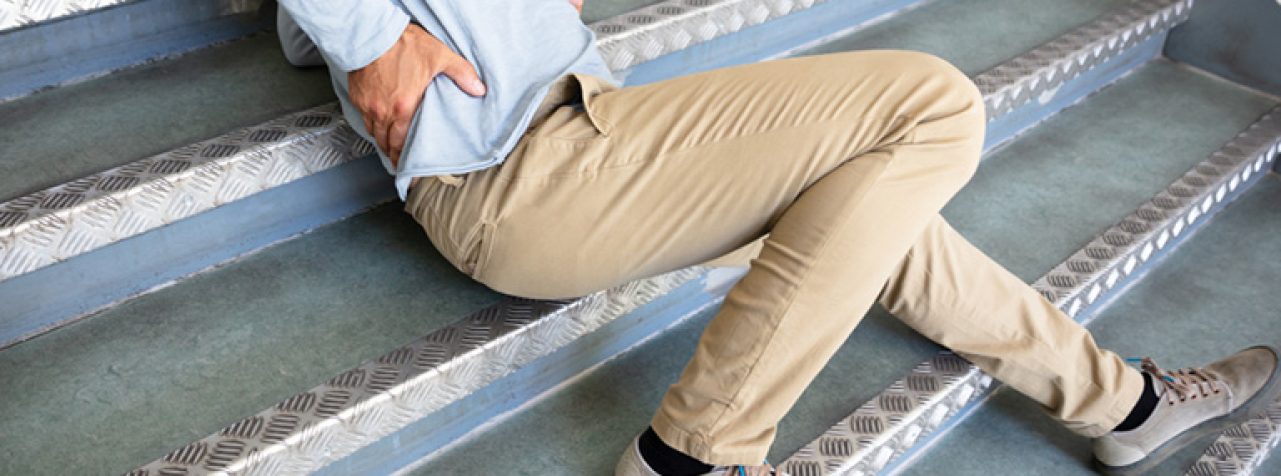Slip and fall accidents happen every day, and while some result in nothing more than a bruised ego, others can cause serious injuries that lead to medical bills, lost wages, and long-term pain. If you’ve been injured in a slip and fall accident, you may be wondering if you have a legal claim. Not every fall is grounds for a lawsuit, but when negligence is involved, you may be entitled to compensation.
Understanding Premises Liability
Slip and fall cases fall under the category of premises liability law, which holds property owners responsible for maintaining safe conditions on their premises. If a hazardous condition exists and the property owner fails to address it or warn visitors, they may be held liable for injuries that occur as a result.
However, proving liability isn’t always simple. You must be able to show that:
- A dangerous condition existed – Examples include wet floors, uneven sidewalks, poor lighting, or cluttered walkways.
- The property owner knew (or should have known) about the hazard – If the hazard existed long enough that the owner should have reasonably addressed it, they may be held responsible.
- The owner failed to fix the issue or provide warnings – Simply having a hazard isn’t enough; it must be shown that the owner neglected their duty to make the area safe.
- The hazard directly caused your injuries – There must be a clear link between the dangerous condition and your injury.
Common Causes of Slip and Fall Accidents
Slip and fall accidents can happen anywhere, from grocery stores and shopping malls to private homes and workplaces. Some of the most common causes include:
- Wet or slippery floors – Spills that aren’t promptly cleaned up or mopped floors without warning signs.
- Uneven surfaces – Cracked sidewalks, loose tiles, or potholes.
- Poor lighting – Dimly lit stairwells or parking lots that make hazards difficult to see.
- Loose rugs or mats – Entryway mats that are not secured can be a tripping hazard.
- Broken stairs or handrails – Unsafe staircases can make falls more likely.
- Obstructions in walkways – Electrical cords, clutter, or merchandise left in aisles.
Who is Liable in a Slip and Fall Case?
Liability in slip and fall cases depends on where the accident occurred and whether the property owner was negligent. Here’s how it typically breaks down:
- Business Owners – Stores, restaurants, hotels, and shopping centers must keep their premises safe for customers. If a hazard exists (like a spill in a grocery store aisle), they must clean it up promptly or place warning signs.
- Landlords – If a tenant or visitor is injured due to unsafe conditions in an apartment complex, the landlord may be liable if they failed to maintain the property.
- Private Property Owners – Homeowners can be held responsible if they invite guests over and fail to address known hazards, like broken steps or loose carpeting.
What If You Were Partly at Fault?
A common question in slip and fall cases is, “What if I wasn’t paying attention?” Florida follows a comparative negligence rule, which means that even if you were partially responsible for the accident, you may still recover damages. However, your compensation will be reduced by your percentage of fault.
For example, if a court determines that you were 30% responsible for the fall because you were looking at your phone, and the property owner was 70% responsible for failing to clean up a spill, your compensation would be reduced by 30%.
What Compensation Can You Recover?
If you successfully prove a slip and fall claim, you may be entitled to compensation for:
- Medical expenses – Doctor visits, hospital bills, rehabilitation, and ongoing treatment.
- Lost wages – If your injury prevents you from working, you can seek compensation for lost income.
- Pain and suffering – Compensation for physical pain and emotional distress caused by the injury.
- Future damages – If the injury leads to long-term disability or ongoing medical needs.
Steps to Take After a Slip and Fall Accident
If you’ve been injured in a slip and fall, taking the right steps can strengthen your case:
- Report the incident – Notify the property owner, store manager, or landlord immediately.
- Document the scene – Take photos of the hazard that caused your fall.
- Gather witness statements – If anyone saw the fall, get their contact information.
- Seek medical attention – Even if injuries seem minor, get checked out by a doctor.
- Keep records – Save medical bills, lost wage documentation, and any communication with property owners or insurance companies.
Slip and fall cases can be complex, but if negligence played a role in your accident, you may have a valid claim. Understanding your rights and gathering evidence early can make all the difference.
